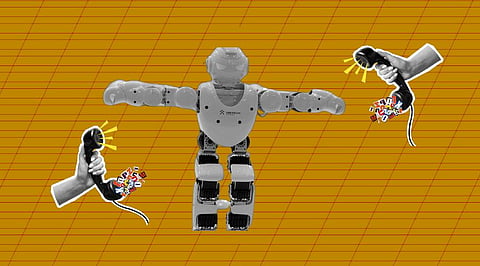

The animated 1960s sitcom The Jetsons featured Rosie the robot maid zipping about a futuristic house doing all the chores humans would rather avoid. Assistive robots have not quite caught up to that level of technology. But in a few years, robotic assistants might be a common sight in the homes of elderly people, assisting them in taking care of themselves, offering emotional support, and affording physicians and nurses remote access. They could provide residents with entertainment or housekeeping assistance in nursing homes. Additionally, they are already doing some routine duties in hospitals, freeing up nurses to concentrate on patient care.
As the world's population ages, there is a growing need for automated help. The World Health Organization forecasts that there are more than 1 billion persons over the age of 60, and that number will increase to 1.4 billion by 2030, or one in every six people, necessitating the hiring of an additional 6 million nurses. Since 2015, the government of Japan, where roughly one-third of the population is over 65, has offered incentives to care institutions for the acquisition of robots. These include robotic baby seals that help calm dementia patients as well as exoskeletons that assist workers in lifting patients.
Falling is one of the major causes of mortality for those over 65 worldwide, thus researchers at Nanyang Technological University and Tan Tock Seng Hospital in Singapore are working to reach senior communities with the device. According to CDC data, falls in the US are the main reason why people 65 and older die from injuries.
Mister Bah, also known as the mobile robot balancing assistance, is a wheeled vehicle with sensors and a hip strap for patients to wear. Researchers plan to start selling their new robots within the next year. It can assist patients who lose their balance before they fall to the ground. The device follows elderly patients as they go about their daily business, including sitting, standing, and obtaining drinks. The harness attaches itself and stops a patient from falling when Mister Bah detects that they are going to lose their equilibrium.
According to senior researcher Wei Tech Ang, "Many of these patients slip into a negative spiral since they don't walk because they are afraid of falling, they just sit there all day along with that, the device would also help keep patients active."
MRBA was utilized for three days in the first clinical studies including 29 patients at hospitals, and every fall was successfully avoided. There were patients with spinal cord and brain damage. MRBA has reportedly been tested on 50 hospital patients, who, according to Ang, are constantly asking when they can utilize the device once more.
Ang claimed that after observing how his elderly mother was affected by a lack of balance, he started researching the possibility of a robot assistant. "My mum was the target," Ang added. "My mother fell approximately ten years ago; at that moment, I started to have this notion of a robot to assist so that people don't fall at home," the researcher added. Ang also stated that once the robots are made accessible to the general public, he wants to present one to his mother, who served as the inspiration for their creation.
The team now aims to conduct tests in various environments and work to get Mister Bah approved by regulatory organizations worldwide so that Mister Bah may begin selling the devices. The team wants to offer a high-tech version to hospitals and a personal at-home version, but they need to raise millions of dollars to make this happen, according to the Washington Post.
Join our WhatsApp Channel to get the latest news, exclusives and videos on WhatsApp
_____________
Disclaimer: Analytics Insight does not provide financial advice or guidance on cryptocurrencies and stocks. Also note that the cryptocurrencies mentioned/listed on the website could potentially be scams, i.e. designed to induce you to invest financial resources that may be lost forever and not be recoverable once investments are made. This article is provided for informational purposes and does not constitute investment advice. You are responsible for conducting your own research (DYOR) before making any investments. Read more about the financial risks involved here.
